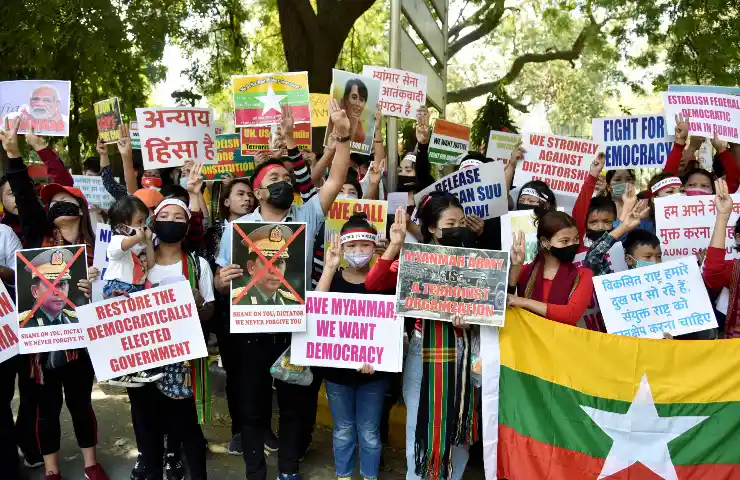The United Nations on Monday called for a New Year's ceasefire in Myanmar between the country's military and its opponents, urging all parties to exercise utmost restraint and seek a peaceful resolution to the conflict in the interest of the people.
UN Special Envoy to Myanmar, Noeleen Heyzer said: "The people of Myanmar have already suffered tremendously and the socio-economic and humanitarian situation has been compounded by the COVID-19 pandemic. Those inflicting suffering on their own people need to silence their guns and protect people in times of great need.
The future of Myanmar's children counts on this," reported Sputnik. Heyzer said her statement echoes the earlier call by the UN Security Council calling for a ceasefire that comes out of the deep concern about the continued escalation of violence in Kayin State and other parts of Myanmar, which has displaced hundreds of thousands of civilians.
On Sunday at least 35 people, including women and children, were killed and their bodies were burned in Myanmar. The National Unity Government (NUG) called it a "Christmas massacre in Karenni state."
The Myanmar military, which seized power in a February coup said it had shot and killed an unspecified number of "terrorists with weapons" from the opposition armed forces in the village, according to state media. The people were in seven vehicles and did not stop for the military, it said.
The UN Special Envoy also called on all parties in Myanmar to act in the greater interest of the nation and to fully respect their obligations under international humanitarian and human rights law to protect civilians, reported Sputnik.
Heyzer also appealed for allowing humanitarian assistance to be provided to those in need, including those forced to flee the violence.
Heyzer, who began her assignment earlier this month, reaffirmed her full commitment to support the people of Myanmar and promote peace as well as said to continue to focus on mobilizing coherent international support to achieve these goals.
Myanmar has been in turmoil since the military overthrew the previous elected government and detained many top officials, including ousted civilian leader Aung San Suu Kyi, who was jailed earlier this month.
Since the coup, the military has tried to assert its power over the people through bloody force.
UN agencies, rights groups, and local journalists have documented massacres, mass arrests, torture, forced displacement, men, women, and children being murdered with impunity, heavy weaponry used by junta forces to attack villages and root out armed resistance groups, and the blocking of humanitarian aid.
Junta forces have killed more than 1,300 people and arrested over 11,000, according to advocacy group Assistance Association for Political Prisoners, reported CNN.




















